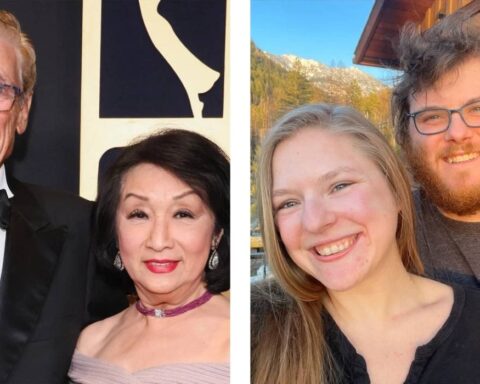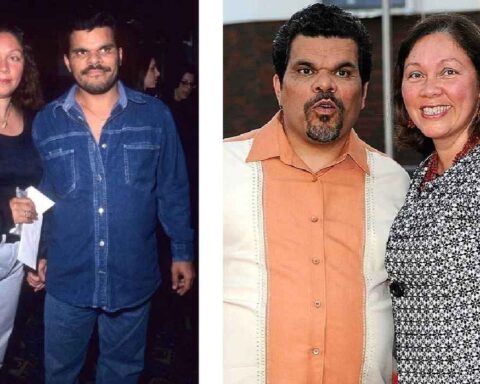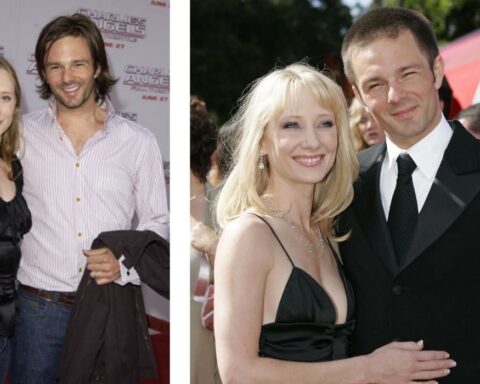In a world filled with influential personalities, many figures remain relatively unknown to the broader public despite their exceptional contributions to culture, society, and education. One such enigmatic individual is Midori Fujiwara. Although her name may not immediately resonate with the masses, her life story is filled with dedication, perseverance, and an unyielding passion for cultural preservation and social advocacy. Midori Fujiwara embodies a fascinating blend of tradition and modernity, making her a unique figure worth exploring in depth. From her early days in Japan to her global engagements in cultural education, her life has been nothing short of extraordinary. This article aims to shed light on the life, achievements, and legacy of Midori Fujiwara.
Quick Bio
| Personal Details | Information |
| Full Name | Midori Fujiwara |
| Nationality | Canadian |
| Place of Birth | Not publicly disclosed (likely Canada) |
| Date of Birth | Not publicly disclosed (Estimated late 50s to early 60s) |
| Spouse | Hugh Dillon |
| Marriage Year | 1997 |
| Children | Three adult children: Maria, Peter, Annie |
| Sister | Denise Fujiwara (Canadian dance artist and choreographer) |
| Residence | Toronto, Canada |
Early Life and Cultural Roots of Midori Fujiwara
Midori Fujiwara was born in Japan in a small, culturally rich town where traditions were deeply ingrained in daily life. Raised in a family that emphasized the importance of education, discipline, and respect for heritage, she was introduced early to the core values that shaped her worldview. The picturesque environment of her hometown, surrounded by historical temples and traditional festivals, planted the seeds of cultural appreciation within her. These experiences were pivotal in forming her future aspirations. Her family ensured that she not only received a formal education but was also immersed in classical Japanese arts such as Ikebana (flower arrangement), Shodo (calligraphy), and Sadō (the tea ceremony). These disciplines taught her patience, precision, and the deeper philosophical.
Education and Intellectual Foundations
Driven by an insatiable curiosity, Midori Fujiwara excelled academically, attending some of Japan’s prestigious educational institutions. She specialized in cultural studies, anthropology, and education, combining these fields to gain a holistic understanding of society and human behavior. Midori was particularly drawn to the concept of how culture shapes identity and influences social structures. Her studies were not limited to Japan; she traveled abroad to gain perspectives on how other countries preserved their traditions while embracing modernity. This global exposure enriched her insights and solidified her commitment to cultural advocacy. She understood that in a rapidly globalizing world, the unique essence of cultural identity was at risk of being diluted. Her academic pursuits laid the groundwork for her future roles.
Midori Fujiwara’s Career: A Journey of Cultural Advocacy
Midori Fujiwara’s professional journey is a testament to her multifaceted talents and unyielding passion for cultural preservation. She began her career as an educator, teaching cultural studies and history at universities in Japan and later abroad. Her teaching style was unique—she didn’t just impart knowledge; she immersed her students in cultural experiences, using storytelling, interactive workshops, and traditional practices. Her classes were often described as transformative experiences that provided students with not only academic knowledge but also a deep appreciation for cultural heritage.
Beyond academia, Midori took on roles as a cultural consultant and advisor for various international organizations. She worked with museums, cultural institutions, and governmental agencies to curate exhibitions, design cultural exchange programs, and develop educational curricula centered on traditional arts. Her expertise was sought in shaping policies that aimed to preserve intangible cultural heritage, a critical area often overlooked in policy-making circles.
Global Influence and International Collaborations
Midori Fujiwara’s influence extended far beyond the shores of Japan. She was instrumental in fostering cross-cultural dialogues between Japan and other countries, particularly in Asia, Europe, and North America. She participated in numerous international conferences, where she spoke on topics ranging from the preservation of endangered cultural practices to the role of women in cultural leadership. Her eloquence, depth of knowledge, and genuine passion made her a respected figure on the global stage.
One of her notable collaborations was with UNESCO, where she contributed to initiatives focused on safeguarding intangible cultural heritage. Midori’s input was pivotal in developing frameworks that respected the authenticity of cultural practices while adapting them for contemporary relevance. She believed that tradition should not be fossilized but rather adapted creatively to remain meaningful in modern society. This philosophy guided much of her work and distinguished her from other cultural advocates.
Midori Fujiwara’s Advocacy for Women and Education
While Midori Fujiwara is best known for her cultural work, she was equally passionate about social causes, particularly the empowerment of women through education. Growing up, she observed the limitations imposed on women in traditional societies, which fueled her determination to create change. She actively supported educational programs aimed at uplifting women in underprivileged communities, both in Japan and internationally.
She founded several initiatives that provided scholarships, mentorship, and vocational training for women. Midori believed that education was the most powerful tool for empowerment, enabling women to break the cycles of poverty and discrimination. Her programs also integrated cultural education, ensuring that recipients remained connected to their roots while forging new paths for themselves. Through her advocacy, countless women have accessed opportunities that were previously beyond their reach.
Personal Life: The Private Side of Midori Fujiwara
Despite her public engagements and achievements, Midori Fujiwara has always been a deeply private individual. She seldom speaks about her personal life in interviews, maintaining a clear boundary between her professional and personal spheres. However, those close to her describe her as a humble, compassionate, and introspective person. She finds solace in traditional arts, often practicing tea ceremonies and calligraphy in her free time. These activities not only relax her but also keep her connected to the cultural practices she so passionately promotes.
Midori’s personal philosophy revolves around the concept of ‘Ikigai’—a Japanese term meaning “reason for being.” She has often mentioned that her work gives her purpose, aligning perfectly with her life’s mission to preserve and propagate cultural knowledge. This alignment of personal values and professional pursuits has been a cornerstone of her sustained impact.
Legacy and Continuing Impact
Midori Fujiwara’s legacy is already well cemented, yet her work continues to evolve. She remains active in mentoring young scholars, cultural practitioners, and activists. Many of her former students have gone on to establish their own initiatives in cultural preservation, citing her as a major influence. She has also authored several books and academic papers that serve as critical resources for those interested in cultural studies and heritage preservation.
Her methodologies in education and cultural advocacy have been adopted in various parts of the world, adapting to local contexts while retaining the core philosophy of respecting and preserving cultural integrity. Midori’s vision is not just to keep traditions alive but to make them accessible and relevant for future generations.
Challenges Faced by Midori Fujiwara
Like many trailblazers, Midori Fujiwara faced her share of challenges. She often navigated the complex terrain of balancing modernization with cultural preservation, a task fraught with conflicts and controversies. Critics argued that some traditions are better left in the past, while purists felt that her adaptive methods compromised authenticity. Midori, however, maintained a balanced perspective, advocating for a middle path that honors tradition while embracing necessary evolution.
Additionally, as a woman in a predominantly male-dominated academic and policy-making space, she faced gender biases and obstacles. Nevertheless, her resilience, expertise, and unwavering dedication helped her break through these barriers, establishing herself as a leading voice in her field.
Midori Fujiwara Today: A Living Icon
Today, Midori Fujiwara continues to be a vibrant figure in cultural and educational circles. She participates in seminars, contributes to think tanks, and advises cultural institutions worldwide. Her current projects involve digital platforms aimed at making cultural education more accessible to younger generations. She understands the potential of technology in preserving heritage and is actively working to create virtual experiences that can bring traditional arts to the digital age.
Despite her age, Midori remains as energetic and passionate as ever, proving that the pursuit of knowledge and cultural understanding is a lifelong journey. Her story inspires not only those in the field of cultural studies but anyone who believes in the power of education, resilience, and purpose-driven work.
Conclusion: Why Midori Fujiwara’s Story Matters
The story of Midori Fujiwara is a compelling reminder of the importance of cultural preservation in an increasingly homogenized world. Her life’s work demonstrates that tradition and modernity need not be at odds but can coexist harmoniously through thoughtful adaptation and education. Midori’s dedication to cultural advocacy, education, and social empowerment has left an indelible mark, influencing policies, institutions, and individuals alike.
For those seeking inspiration, Midori Fujiwara’s journey offers valuable lessons in perseverance, the importance of staying true to one’s roots, and the transformative power of education. She may not be a celebrity, but her impact is profound, quietly shaping the cultural and educational landscapes for generations to come.
Frequently Asked Questions (FAQ)
1. Who is Midori Fujiwara?
- Midori Fujiwara is a Japanese cultural advocate, educator, and social activist known for her efforts in cultural preservation, education, and women’s empowerment. She has worked globally to promote Japanese heritage and foster cross-cultural understanding.
2. What is Midori Fujiwara famous for?
- She is best known for her work in preserving Japanese cultural traditions and integrating them into modern educational systems. She also advocates for women’s education and empowerment.
3. What contributions has Midori Fujiwara made to education?
- Midori Fujiwara has developed unique educational programs that combine cultural education with social empowerment. She has also taught at universities, mentored students, and created initiatives to support underprivileged communities.
4. How has Midori Fujiwara influenced cultural preservation globally?
- Through collaborations with UNESCO and other international bodies, Midori has influenced policies and programs that aim to safeguard intangible cultural heritage. Her methods are respected worldwide for balancing authenticity with modern relevance.
5. Is Midori Fujiwara still active today?
- Yes, Midori Fujiwara remains active in cultural advocacy, education, and digital initiatives aimed at preserving cultural practices for future generations.









